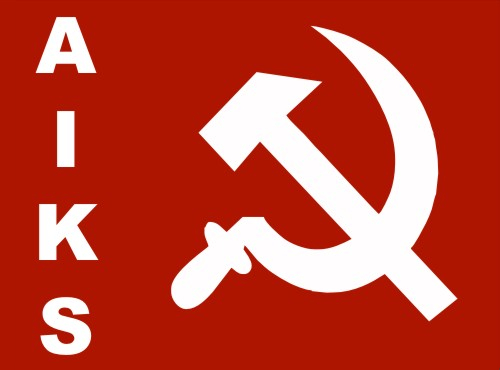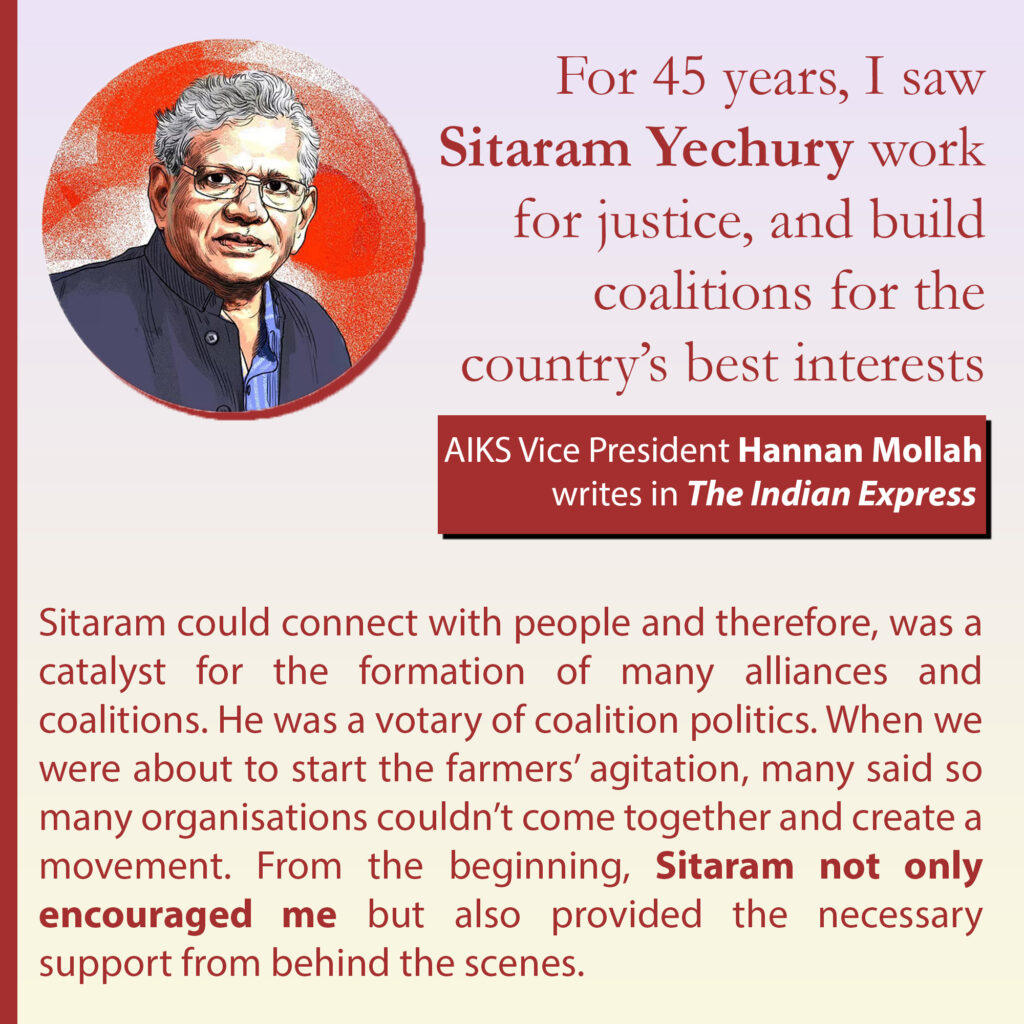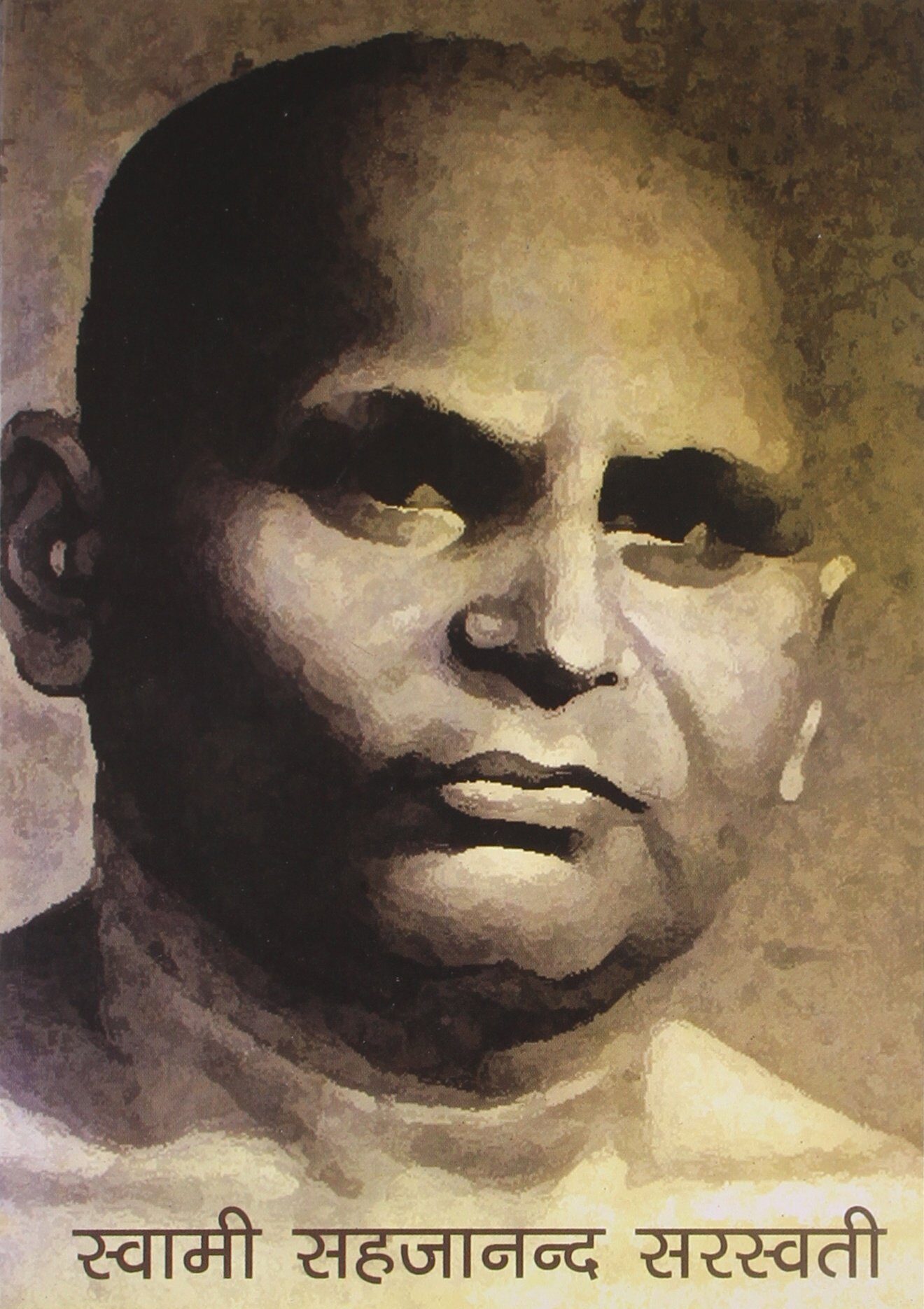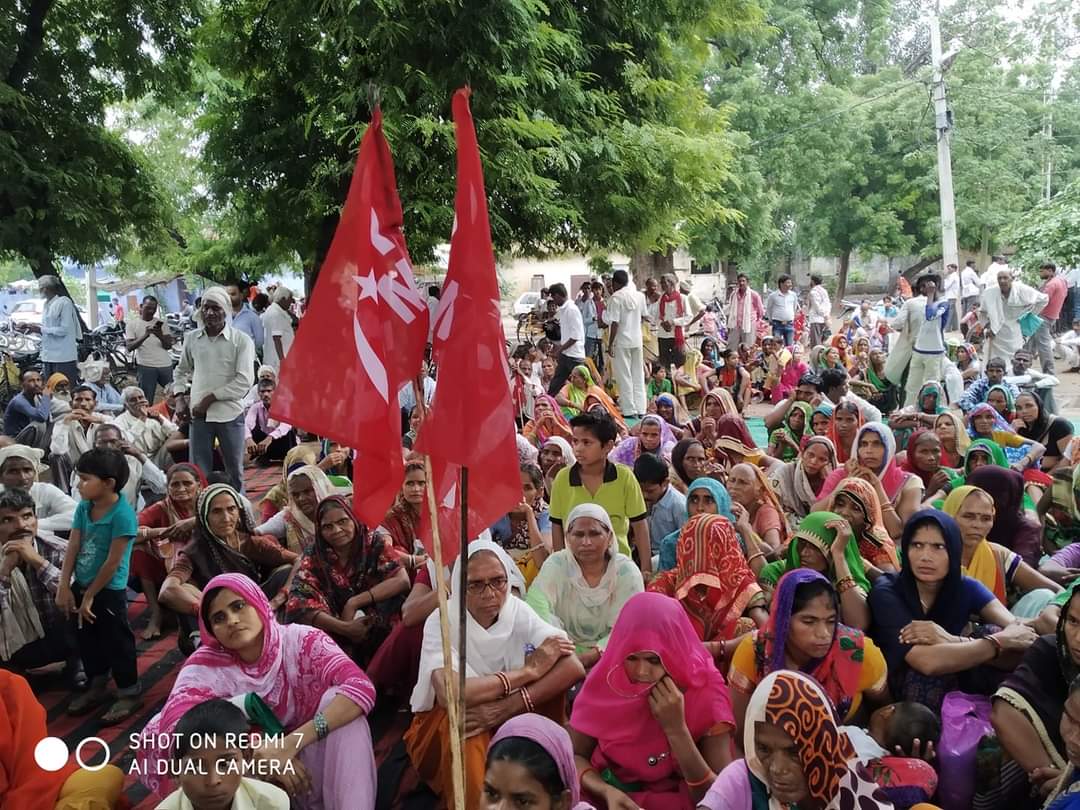For 45 years, I saw Sitaram Yechury work for justice, and build coalitions for the country’s best interest: Comrade Hannan Mollah
I first met comrade Sitaram Yechury in 1980, when I was elected as MP for the first time from the Uluberia constituency in West Bengal, and as All India General Secretary of the Democratic Youth Federation of India (DYFI). At the time, Yechury used to look after the SFI All-India office in Delhi. We started working together. Yechury’s introduction to politics was at JNU. He was elected president of the student union for three consecutive terms. Soon, his activities moved beyond the campus and he worked to spread the SFI in different states.
It was clear to me early on that Yechury was committed to our ideology and had a strong sense of justice. He wrote well and was the editor of SFI’s mouthpiece. Under him, the publication achieved a much higher standard. In 1984, Sitaram became the All-India President of the SFI. At the time, there were separatist agitations in states like Assam and Punjab. Standing against such movements, he played an important role in garnering public support for national unity.
During the early 1980s, Yechury had a seminal role in spreading the “work for all and education for all” message of the SFI and DYFI. On September 15, 1981, we held a mega rally at Delhi’s boat club. It remains one of the most significant and memorable rallies in Delhi.
For 45 years, my relationship with Sitaram deepened and we were part of various movements across India. Sitaram had an almost unfathomable ability to organise movements and inspire people. In addition, there were his oratory skills and erudition.
Sitaram became a CPI(M) member in 1975. In just 10 years, in 1985, he became a Central Committee (CC) member. I was also elected to the CC the same year. In 1989, he became a central secretariat member, in 1992 he became a politburo member and in 2015, he was elected as the party’s general secretary.
He was fully committed to his Marxist ideology and the Marxist-Leninist form of organisational practice.
When there was a debate between China and Russia, or confusion after the fall of the erstwhile Soviet Union, he played an important role in drafting ideological documents. In 2012, he brought out the party’s ideological document and its explanation almost single-handedly.
For a long time, he was the editor of the party’s mouthpiece People’s Democracy as well as Marxist. In 2005 for the first time, he was elected as a Rajya Sabha member. Later, he became the party leader in the Upper House.
As an MP, he was respected by everyone. In 2017, he got the award for the Best Parliamentarian. His importance in national politics grew. His opposition to the RSS was backed by his deep knowledge of the organisation.
He has penned many books on secularism and communalism, which are important texts for of us on the Left. As communal forces and its activities rose in the country, Sitaram’s efforts to bring all secular political parties together and combat the threat increased. He played an important role in the current Opposition unity against the corporate, communal Narendra Modi government.
Even when the CPI(M) supported the UPA, Sitaram was the one who exerted pressure on the Manmohan Singh government on behalf of the Left. He did not stop the fight against neoliberal economic policies.
Sitaram could connect with people and therefore, was a catalyst for the formation of many alliances and coalitions. He was a votary of coalition politics. When we were about to start the farmers’ agitation, many said so many organisations couldn’t come together and create a movement. From the beginning, Sitaram not only encouraged me but also provided the necessary support from behind the scenes.
Sitaram was eight years younger than me. I never imagined that he would suddenly leave us. He was, and will remain, one of the most inspiring figures of democratic and communist movements. The void he left is difficult to fill. In politics, we will try to do so and strengthen the movement he gave his life to. But the chasm left in my life, after a 45-year relationship, can never be filled.
Written by AIKS Vice President Comrade Hannan Mollah in The Indian Express.




